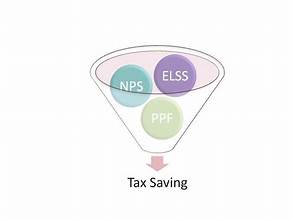Potential of Tax-Saving Investment Instruments
In the realm of personal finance, effective tax planning stands as a cornerstone for maximizing savings and securing financial well-being. While the tax season can often be a source of stress for many individuals, understanding and leveraging tax-saving investment options can significantly alleviate this burden while fostering wealth accumulation. Among the plethora of investment avenues available, Public Provident Fund (PPF), National Pension System (NPS), and Equity Linked Savings Scheme (ELSS) emerge as stalwarts offering both tax benefits and high returns. In this comprehensive guide, we delve into the intricacies of these investment vehicles, particularly emphasizing their advantages when employed through monthly deposits.
Decoding Public Provident Fund (PPF): A Time-Tested Favorite
PPF: A Reliable Anchor in Your Investment Portfolio
Public Provident Fund, fondly referred to as PPF, has garnered widespread acclaim for its dual benefits of tax savings and secure returns. Established by the Government of India, PPF operates under the purview of the Public Provident Fund Act of 1968, rendering it a safe and regulated avenue for investment. One of the most compelling features of PPF lies in its tax-exempt status, with both the principal investment amount and the interest earned being eligible for tax deductions under Section 80C of the Income Tax Act. Furthermore, the accrued interest enjoys tax-free status, amplifying the overall returns on investment.
Unlocking the Power of Monthly Deposits in PPF
While traditionally, PPF contributions have been made on an annual basis, embracing monthly deposits can offer a myriad of advantages. By opting for monthly contributions, investors can benefit from the power of rupee cost averaging, thereby mitigating the impact of market fluctuations. Additionally, monthly deposits instill financial discipline and facilitate seamless integration of savings into one’s monthly budget, fostering a consistent approach towards wealth accumulation.
Harnessing the Potential of National Pension System (NPS): Securing Your Retirement Future
NPS: Building a Nest Egg for Your Golden Years
The National Pension System, commonly known as NPS, stands as a premier retirement planning tool designed to provide financial security during one’s post-retirement phase. Governed by the Pension Fund Regulatory and Development Authority (PFRDA), NPS offers a unique blend of market-linked returns and tax benefits, making it an attractive option for individuals seeking to build a robust retirement corpus. Contributions made towards NPS are eligible for tax deductions under Section 80CCD(1) of the Income Tax Act, with an additional benefit of up to INR 50,000 available under Section 80CCD(1B).
Embracing Monthly Contributions for Enhanced Flexibility
The introduction of the Tier-II account in NPS has paved the way for monthly contributions, thereby offering investors greater flexibility and liquidity. Unlike the Tier-I account, which mandates adherence to strict withdrawal guidelines, the Tier-II account allows investors to withdraw funds at their discretion, making it an ideal choice for individuals seeking liquidity alongside long-term wealth creation. Moreover, by opting for monthly contributions, investors can capitalize on the power of compounding, thereby maximizing the growth potential of their NPS investments.
Exploring the Benefits of Equity Linked Savings Scheme (ELSS): Bridging Tax Savings with Wealth Creation
ELSS: A Gateway to Tax-Efficient Wealth Creation
Equity Linked Savings Scheme, abbreviated as ELSS, occupies a unique position in the realm of tax-saving investment avenues by offering investors exposure to equity markets coupled with attractive tax benefits. As an equity-oriented mutual fund scheme, ELSS invests a significant portion of its corpus in equities and equity-related instruments, thereby harnessing the wealth creation potential of the stock market. Investments in ELSS qualify for tax deductions under Section 80C of the Income Tax Act, with a lock-in period of three years.
Maximizing Returns Through Systematic Investment Plans (SIPs)
By embracing the concept of Systematic Investment Plans (SIPs), investors can harness the benefits of regular investing while navigating market volatility with ease. SIPs enable investors to allocate a fixed sum towards ELSS at regular intervals, thereby averaging out the purchase cost and minimizing the impact of market fluctuations. Moreover, SIPs instill discipline and consistency in one’s investment approach, paving the way for long-term wealth creation while optimizing tax savings.




